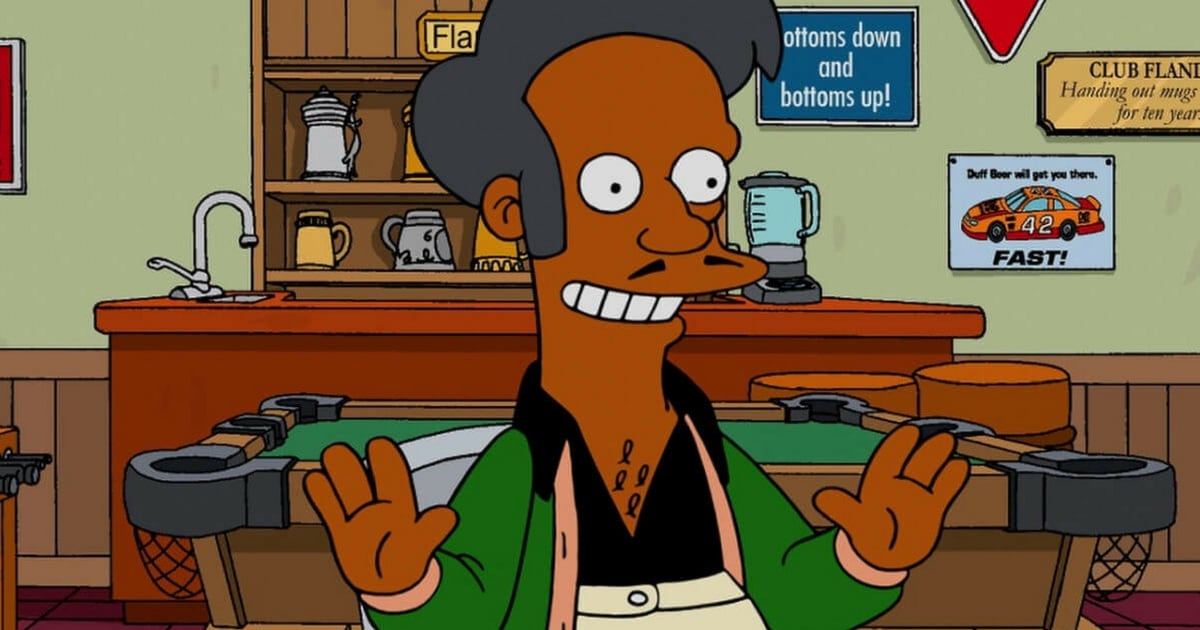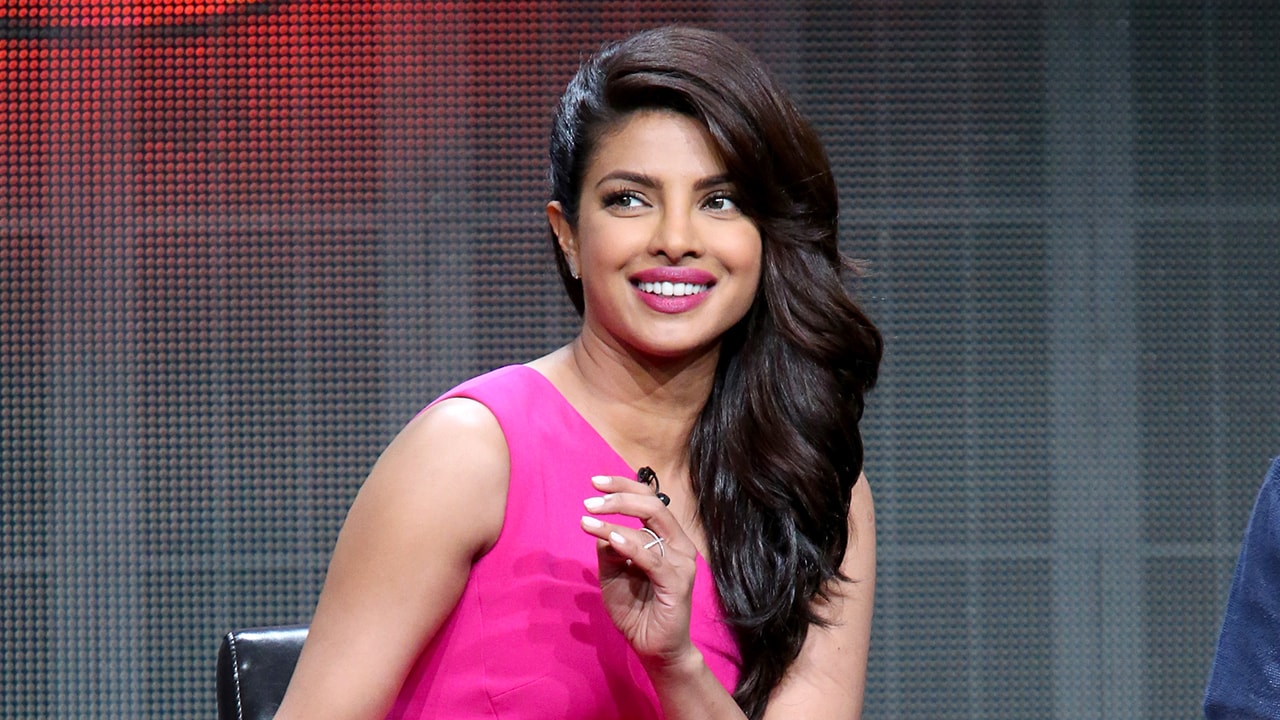In late 2017, Indian-American comedian Hari Kondabolu released
a documentary titled The Problem with Apu
that examined the problematic stereotype of The Simpsons’ character Apu, the Kwik-E-Mart owner. The character, who has haunted a generation of Asian kids in America, speaks with a heavy Indian accent and is voiced by Hank Azaria, a white man. In the latest episode that aired on Sunday night in the US, the show’s creators chose to respond to Kondabolu’s critique with a short message to its audience: “Don’t have a cow”. In an episode titled ‘No Good Read Goes Unpunished’, Marge is seen reading a book called The Princess in the Garden to her daughter Lisa. The previously racist book is re-written to meet modern standards but Lisa doesn’t seem impressed by the new, more politically correct version. When Lisa complains, Marge asks, “What am I supposed to do?” [caption id=“attachment_4426139” align=“alignnone” width=“1200”]
 Apu from The Simpsons.[/caption] “It’s hard to say,” Lisa responds looking straight at the camera, adding, “Something that started decades ago, and was applauded and inoffensive, is now politically incorrect. What can you do?” She then looks at her nightstand to a framed photo of Apu with the caption “don’t have a cow” making it clear that they are no longer talking about the fictional books.
Apu from The Simpsons.[/caption] “It’s hard to say,” Lisa responds looking straight at the camera, adding, “Something that started decades ago, and was applauded and inoffensive, is now politically incorrect. What can you do?” She then looks at her nightstand to a framed photo of Apu with the caption “don’t have a cow” making it clear that they are no longer talking about the fictional books.
This is a particularly glib and dismissive response from a show which, in its 29th season, is considered a cultural staple.
In the 80s and 90s, the most prominent Indian face on American TV was Apu. His singsong and heavily caricatured accent became the identity of Indians in the US. Calling a South Asian ‘Apu’ or saying ‘Thank you, come again” became go-to staples for bullies, and are possibly the mostly deeply entrenched symbols of derision for any brown person. Also read:
The Simpsons address Apu racism row in new episode, sparking severe backlash from fans
Priyanka Chopra, who lived in New York during her teens, has talked about the racial stereotypes she had to live with. While
promoting the first season
of Quantico in 2015, she made it her mission to hammer home the idea that “Everybody doesn’t speak like Apu from The Simpsons. We all don’t smell of curry.”
In an interview to Complex Magazine
, the actress said, “There are so many Indian actors who have crossed over, and have done a lot of work in the West, but they’ve always been made to speak like Apu. I want to be able to break the stereotype of what Indian people or people of South Asian descent are supposed to be”. Actor Kal Penn, who grew up in the Age of Apu, has firsthand experience about being asked to channel Apu in countless auditions. It’s not surprising then that he hates Apu. In Kondabolu’s documentary, Kal, who is currently a part of the political drama Designated Survivor, said, “Here you are, you’ve gone to theatre and film school, you’re pursuing this dream, and you’re being told, do it just like Apu from The Simpsons.” [caption id=“attachment_4198051” align=“alignnone” width=“1280”]
 Priyanka Chopra. Getty Images.[/caption] In recent years, actors like Kal, Priyanka, Aziz Ansari and Mindy Kaling have gained more visibility on the American small screen while breaking away from the stereotypical South Asian characters that tended to be terrorists, doctors or quirky sidekicks. This year, ABC (the same channel that airs Quantico) is launching The Greatest American Hero
, TV’s first female Indian-American superhero who will be played by New Girl’s Hannah Simone. Also on ABC, Mouzam Makkar plays the lead in
The Fix
, a law drama while Sarayu Blue will be seen in Amy Poehler’s untitled NBC comedy as a single mom and video-game storyboard artist trying to ‘have it all’. A lot has changed in how South Asians are viewed on-and-off the screen since Apu first made an appearance in The Simpsons in 1989. The fact that Matt Groening and Team Simpson aren’t prepared to acknowledge their accountability in the stereotype they created and continue to perpetuate is disappointing. Just because something racist has been funny to white people for 30 years doesn’t mean that it stops being racist. Their response to the complex conversation initiated by Kondabolu’s documentary is a dialogue equivalent of a shoulder shrug and a joke at the expense of Apu’s religion. What’s even more heartbreaking is that they got Lisa, possibly the show’s more socially aware and empathetic character, to deliver it.
Priyanka Chopra. Getty Images.[/caption] In recent years, actors like Kal, Priyanka, Aziz Ansari and Mindy Kaling have gained more visibility on the American small screen while breaking away from the stereotypical South Asian characters that tended to be terrorists, doctors or quirky sidekicks. This year, ABC (the same channel that airs Quantico) is launching The Greatest American Hero
, TV’s first female Indian-American superhero who will be played by New Girl’s Hannah Simone. Also on ABC, Mouzam Makkar plays the lead in
The Fix
, a law drama while Sarayu Blue will be seen in Amy Poehler’s untitled NBC comedy as a single mom and video-game storyboard artist trying to ‘have it all’. A lot has changed in how South Asians are viewed on-and-off the screen since Apu first made an appearance in The Simpsons in 1989. The fact that Matt Groening and Team Simpson aren’t prepared to acknowledge their accountability in the stereotype they created and continue to perpetuate is disappointing. Just because something racist has been funny to white people for 30 years doesn’t mean that it stops being racist. Their response to the complex conversation initiated by Kondabolu’s documentary is a dialogue equivalent of a shoulder shrug and a joke at the expense of Apu’s religion. What’s even more heartbreaking is that they got Lisa, possibly the show’s more socially aware and empathetic character, to deliver it.
)